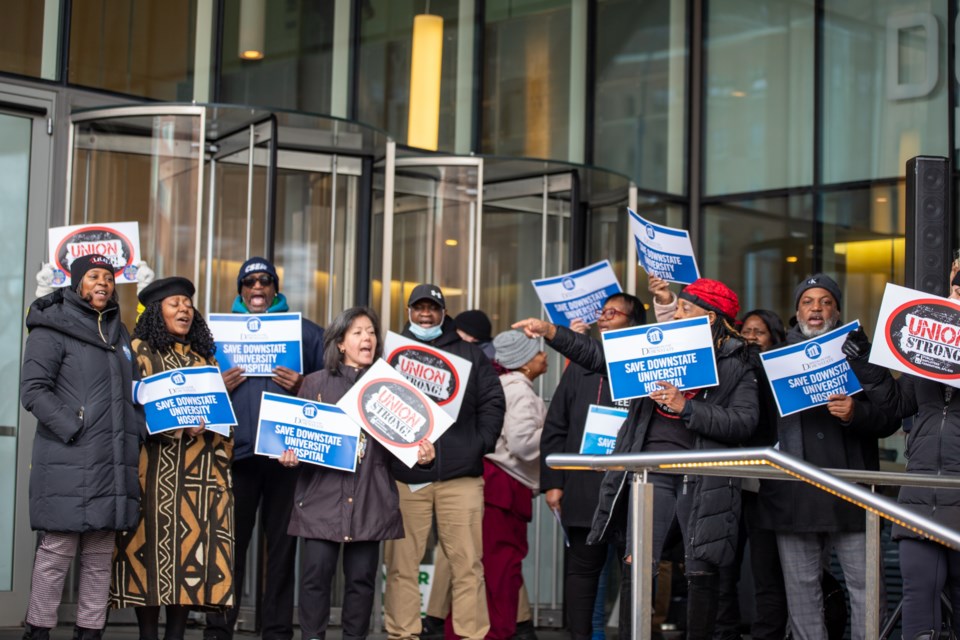Members of the nonprofit group Brooklyn for Downstate rallied outside SUNY Downstate University Hospital on Tuesday to present findings from a report detailing the state of healthcare in Brooklyn.
The report highlights the hospital's significant role in the borough’s healthcare system and outlines recommendations to prevent its closure, according to a press release.
Among the challenges raised in the report are the high rates of uninsured residents, long emergency room wait times, limited transportation options and a maternal mortality crisis. It states that neighboring hospitals are already at full capacity and cannot absorb the demand if Downstate were to close. With the hospital being the only licensed transplant service provider in Kings County, chronic diseases patients would also struggle accessing healthcare, the report said.
Instead of closing the facility, the report recommends, among other solutions, renovating the Emergency Department and Maternal/OB-GYN facilities to improve patient care and and re-establishing cardiothoracic and cardiac surgery programs.
Speakers at the rally, including faith leaders, said SUNY Downstate was a lifeline for underserved Brooklyn communities.
“Closing SUNY Downstate will result in people going without life-saving treatments," said Redetha Abraham-Nichols, DNP, MRA, RN. "We are working to heal our community, support the next generation of New Yorkers, and provide services that our neighbors need. Meanwhile, the SUNY Chancellor refuses to give Brooklynites the time of day. He seems to have decided to take away our hospital even though the data shows it will harm people, and the community says we need it."
The nonprofit is comprised of healthcare workers, community leaders, faith leaders, union members, students, business owners and residents.
“The wonderful thing about this report is that it is based on real data," said Rabbi Eli Cohen, executive director of the Crown Heights Jewish Community Council. "It’s not just somebody’s idea about what will be a good thing for a building or an existing facility. The report is saying, this is what Brooklyn needs right now. We don’t need to start from scratch. We have the answer to the needs that we’ve identified."




